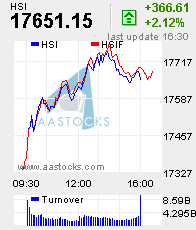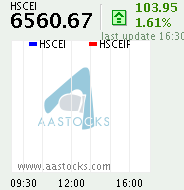The return of the evil inflationary spiral
US is at the brink of recession. The US Government seems to revive the economy at the expense of its currency purchasing power.
China's National Bureau of Statistics data released yesterday showed that China's general consumer prices level (CPI) in October rose 6.5 percent, which is the highest record over the past 10 years. Mainland inflation is not only confined to staple foods but to housing rent and other goods. The pace of inflation has quickened and has no sign of slowing down! Inflation is exerting pressure on the ordinary people livelihood that actually breaks their back.
I was much impressed and suffered by the inflationary spiral happened in 1973 in last century, when I was a freshman in university undergraduate study. The living was very harsh then that I never forget. The general price level soared to a very high level that the poor group was even unable to afford to buy the necessity goods. Being a poor student, this experience is unforgettable. The so-called “oil crisis” happened in the early 70s of the last century was mainly due to the highly soaring price of crude oil as a result of the hyper-inflation exported by US at that time.
It was useless even a new tactic of "wage and price controls" as employed by the US president Nixon in 1973 in order to control the general price soaring at that time. The final outcome was that the price level kept rising further. The “price control” policy was actually in no way to curb the soaring price level. It is because nobody is willing to risk loss to produce or supply things that involove huge production costs, as on one hand inflationary spiral prevails and selling prices be frozen on the other. Double-digit inflation rate and high unemployment rate were resulted then. The "rational expectations theory" was later asserted to explain the 70s economic phenomena. And, the subsequent Chicago "monetarist school" and "supply economic theory" were drawn much attention in late 70s and 80s.
"Inflation" means literally "the volume of the currency in circulation increasing and bubbling". It is just a monetary phenomenon as quoted from Milton Friedman assertion on "inflation".
By definition in economics, inflation is defined as a sustained (continuous and not once for all) increase in general price levels over a period of time. It is measured as the rate of change in percentage of a price index. A variety of inflation measures are in use designed to measure different sets of prices that affect different people. There are many different price indices. Two indices for measuring inflation rates are the Consumer Price Index (CPI) that measures nominal consumer prices, and the implicit GDP deflator that measures percentage change in the nominal prices and constant prices of goods and services produced by a given country or region during a period of time (usually a year).
Mainstream economists overwhelmingly agree that high rates of inflation are caused by high rates of growth of the money supply. Two camps of economists disagreed on the main causes of inflation, namely the "monetarists" argued that money supply dominated all other factors in determining inflation, while the "Keynesians" argued that real demand was often more important than changes in the money supply. However, empirical study shows that the monetarist view is accepted as the liquidity overflow usually the cause of inflation. Printing abundant amount of banknotes (fiat money) without restriction and creating credits by lowering federal discount rate will be leading to inflationary spiral.
The adverse impacts of high inflationary pressure on the economy:
1. As the inflation is unexpected, its result on the economy is re-distribution of income and wealth. The early birds (those aware inflation earlier) may gain and latecomers may suffer. Those holding assets may gain and those holding money may lose. The profit-seekers may gain and the fixed-income earners suffer, especially to those grassroots people whose money income always trails behind inflation. That implies some fortunates may get fabulous rewards and some unfortunates may remain poor. The poor will not spend to much in order to make ends meet. The recent competition for discounted oil in Chongqing Carrefour Shopping Center has caused serious stampede casualties. This shows how serious a social incidence may be induced by inflation expectations.
2. Distorts the distribution of social resources (misallocation of resource), since the Pareto efficiency will be attained for the resources directed efficiently by the invisible hand through market price mechanism without any external intervention. The resources will be mis-allocated particularly during the time of unexpected inflation.
3. The government steals the resources from the public secretly during time of inflation. Therefore, an inflation tax is a metaphor for the economic disadvantage suffered by holders of cash due to the effects of inflation, which acts as a hidden tax that trims the value from those assets. Misuse of resources may be resulted.......and more and more adverse effects induced......
Also in Chinese at http://wongtc.blogspot.com/2007/11/blog-post.html
China's National Bureau of Statistics data released yesterday showed that China's general consumer prices level (CPI) in October rose 6.5 percent, which is the highest record over the past 10 years. Mainland inflation is not only confined to staple foods but to housing rent and other goods. The pace of inflation has quickened and has no sign of slowing down! Inflation is exerting pressure on the ordinary people livelihood that actually breaks their back.
I was much impressed and suffered by the inflationary spiral happened in 1973 in last century, when I was a freshman in university undergraduate study. The living was very harsh then that I never forget. The general price level soared to a very high level that the poor group was even unable to afford to buy the necessity goods. Being a poor student, this experience is unforgettable. The so-called “oil crisis” happened in the early 70s of the last century was mainly due to the highly soaring price of crude oil as a result of the hyper-inflation exported by US at that time.
It was useless even a new tactic of "wage and price controls" as employed by the US president Nixon in 1973 in order to control the general price soaring at that time. The final outcome was that the price level kept rising further. The “price control” policy was actually in no way to curb the soaring price level. It is because nobody is willing to risk loss to produce or supply things that involove huge production costs, as on one hand inflationary spiral prevails and selling prices be frozen on the other. Double-digit inflation rate and high unemployment rate were resulted then. The "rational expectations theory" was later asserted to explain the 70s economic phenomena. And, the subsequent Chicago "monetarist school" and "supply economic theory" were drawn much attention in late 70s and 80s.
"Inflation" means literally "the volume of the currency in circulation increasing and bubbling". It is just a monetary phenomenon as quoted from Milton Friedman assertion on "inflation".
By definition in economics, inflation is defined as a sustained (continuous and not once for all) increase in general price levels over a period of time. It is measured as the rate of change in percentage of a price index. A variety of inflation measures are in use designed to measure different sets of prices that affect different people. There are many different price indices. Two indices for measuring inflation rates are the Consumer Price Index (CPI) that measures nominal consumer prices, and the implicit GDP deflator that measures percentage change in the nominal prices and constant prices of goods and services produced by a given country or region during a period of time (usually a year).
Mainstream economists overwhelmingly agree that high rates of inflation are caused by high rates of growth of the money supply. Two camps of economists disagreed on the main causes of inflation, namely the "monetarists" argued that money supply dominated all other factors in determining inflation, while the "Keynesians" argued that real demand was often more important than changes in the money supply. However, empirical study shows that the monetarist view is accepted as the liquidity overflow usually the cause of inflation. Printing abundant amount of banknotes (fiat money) without restriction and creating credits by lowering federal discount rate will be leading to inflationary spiral.
The adverse impacts of high inflationary pressure on the economy:
1. As the inflation is unexpected, its result on the economy is re-distribution of income and wealth. The early birds (those aware inflation earlier) may gain and latecomers may suffer. Those holding assets may gain and those holding money may lose. The profit-seekers may gain and the fixed-income earners suffer, especially to those grassroots people whose money income always trails behind inflation. That implies some fortunates may get fabulous rewards and some unfortunates may remain poor. The poor will not spend to much in order to make ends meet. The recent competition for discounted oil in Chongqing Carrefour Shopping Center has caused serious stampede casualties. This shows how serious a social incidence may be induced by inflation expectations.
2. Distorts the distribution of social resources (misallocation of resource), since the Pareto efficiency will be attained for the resources directed efficiently by the invisible hand through market price mechanism without any external intervention. The resources will be mis-allocated particularly during the time of unexpected inflation.
3. The government steals the resources from the public secretly during time of inflation. Therefore, an inflation tax is a metaphor for the economic disadvantage suffered by holders of cash due to the effects of inflation, which acts as a hidden tax that trims the value from those assets. Misuse of resources may be resulted.......and more and more adverse effects induced......
Also in Chinese at http://wongtc.blogspot.com/2007/11/blog-post.html











